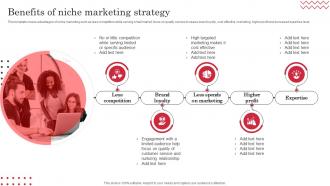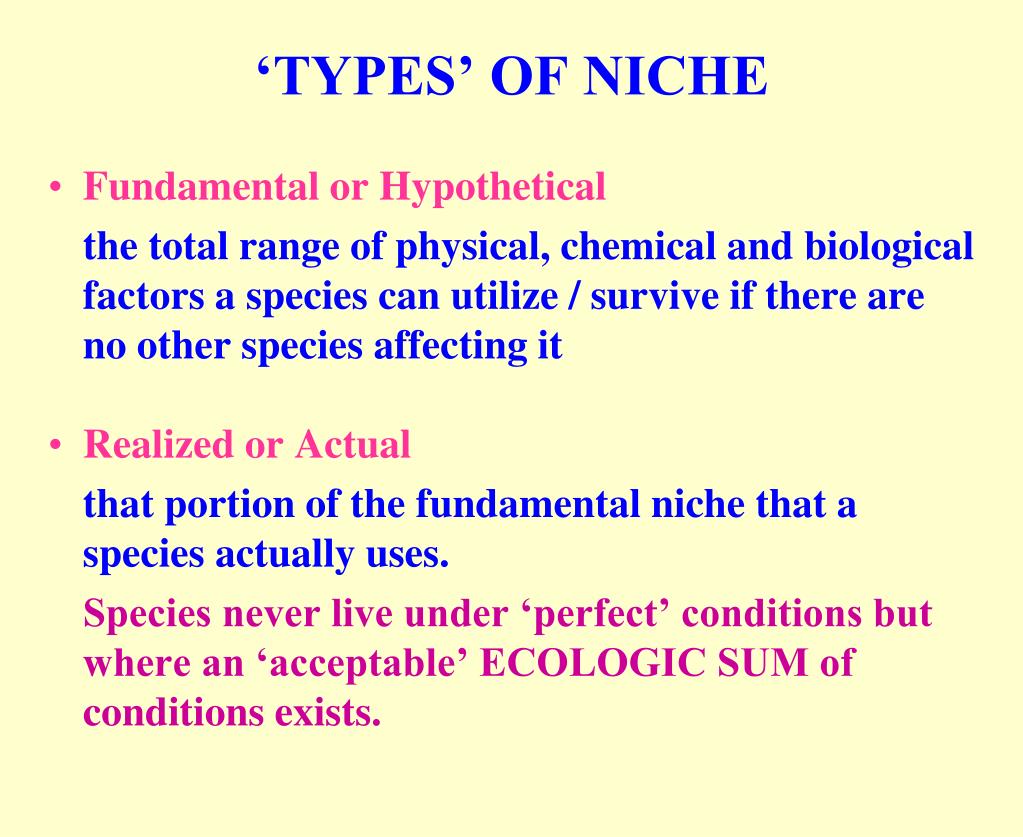What is a Niche: Defining the Concept
In the realm of business, marketing, and personal branding, the concept of a niche plays a vital role in establishing a strong online presence. But what is the definition of a niche, exactly? A niche refers to a specialized area of expertise or a specific segment of a larger market. It is a distinct category that sets a business, product, or service apart from others in the industry.
Understanding the concept of a niche is crucial in today’s competitive market. With the rise of digital marketing, it has become increasingly important for businesses and individuals to identify and focus on a specific niche to stand out from the crowd. By doing so, they can establish themselves as authorities in their field, attract a dedicated audience, and ultimately drive more sales and revenue.
The term “niche” originated from the French word “niche,” meaning “a small, recessed compartment.” In the context of business and marketing, a niche represents a small, specialized segment of the market that is often overlooked by larger companies. By targeting this specific segment, businesses and individuals can create a unique selling proposition (USP) that sets them apart from their competitors.
For instance, instead of targeting the broad market of “health and wellness,” a business might focus on a specific niche like “plant-based nutrition for athletes.” This allows them to create content, products, and services that cater to the specific needs of their target audience, increasing their chances of success.
In summary, a niche is a specialized area of expertise or a specific segment of a larger market. It is a distinct category that sets a business, product, or service apart from others in the industry. By understanding the concept of a niche, businesses and individuals can establish themselves as authorities in their field, attract a dedicated audience, and drive more sales and revenue.
Why Identifying Your Niche Matters: The Benefits of Specialization
Identifying and focusing on a specific niche is crucial for businesses and individuals looking to establish themselves as authorities in their industry. By specializing in a niche, you can increase your credibility, improve your marketing efforts, and enhance customer loyalty. But what are the specific benefits of niche specialization?
One of the primary benefits of niche specialization is increased credibility. When you focus on a specific area of expertise, you can establish yourself as a trusted authority in that field. This can lead to increased recognition, respect, and trust from your target audience. For example, a financial advisor who specializes in retirement planning for small business owners can establish themselves as a go-to expert in that niche.
Another benefit of niche specialization is improved marketing efforts. By targeting a specific niche, you can create marketing campaigns that are tailored to the specific needs and interests of your target audience. This can lead to increased conversions, improved brand awareness, and a stronger online presence. For instance, a health and wellness company that specializes in plant-based nutrition for athletes can create marketing campaigns that speak directly to the needs and interests of that niche.
Niche specialization can also lead to enhanced customer loyalty. When you focus on a specific area of expertise, you can create products and services that meet the specific needs of your target audience. This can lead to increased customer satisfaction, loyalty, and retention. For example, a technology company that specializes in cybersecurity solutions for small businesses can create products and services that meet the specific needs of that niche, leading to increased customer loyalty and retention.
Examples of successful businesses and individuals who have benefited from specializing in a niche include companies like Warby Parker, which specializes in affordable, fashionable eyewear, and individuals like Tim Ferriss, who has established himself as a leading expert in lifestyle design and self-improvement.
In summary, identifying and focusing on a specific niche can lead to increased credibility, improved marketing efforts, and enhanced customer loyalty. By specializing in a niche, businesses and individuals can establish themselves as authorities in their industry, create targeted marketing campaigns, and meet the specific needs of their target audience.
How to Discover Your Niche: A Step-by-Step Guide
Discovering your niche is a crucial step in establishing yourself as an authority in your industry. But how do you go about finding your niche? Here’s a step-by-step guide to help you discover your niche and start building your brand.
Step 1: Identify Your Passions
Start by identifying your passions and interests. What are you enthusiastic about? What do you enjoy talking about? What problems do you want to solve? Your niche should be something that you’re passionate about, as it will make it easier to create content and market your brand.
Step 2: Research Your Target Audience
Once you have an idea of your passions and interests, it’s time to research your target audience. Who are the people that are interested in the same things as you? What are their pain points? What are their goals and aspirations? Understanding your target audience will help you create content and products that meet their needs.
Step 3: Analyze Your Competition
Next, analyze your competition. Who are the other businesses and individuals in your industry? What are they doing well? What are they doing poorly? Analyzing your competition will help you identify gaps in the market and opportunities to differentiate yourself.
Step 4: Use Online Tools and Resources
There are many online tools and resources available to help you discover your niche. Use tools like Google Trends, Keyword Planner, and social media to research your target audience and identify trends and patterns. You can also use online communities and forums to connect with your target audience and get feedback on your ideas.
Step 5: Refine Your Niche
Once you have a idea of your niche, refine it by asking yourself questions like: What specific area of my niche am I most interested in? What specific problems do I want to solve? What specific products or services do I want to offer? Refining your niche will help you create a clear and focused brand that resonates with your target audience.
Examples of successful niches include fitness for busy professionals, sustainable fashion for women, and online marketing for small businesses. These niches are specific, targeted, and meet the needs of a specific audience.
In summary, discovering your niche is a process that requires research, analysis, and creativity. By following these steps, you can identify your passions, research your target audience, analyze your competition, use online tools and resources, and refine your niche to create a clear and focused brand that resonates with your target audience.
Examples of Successful Niches: Real-World Applications
There are many examples of successful niches across various industries. Here are a few examples:
Health and Wellness: Fitness for Busy Professionals
A great example of a successful niche in the health and wellness industry is fitness for busy professionals. This niche targets individuals who have limited time to exercise but still want to maintain a healthy lifestyle. By creating workout routines and meal plans that cater to this specific audience, businesses can establish themselves as authorities in this niche and attract a loyal customer base.
Finance: Personal Finance for Millennials
Another example of a successful niche is personal finance for millennials. This niche targets young adults who are looking for advice on managing their finances, paying off student loans, and investing in their future. By creating content and resources that speak directly to this audience, businesses can establish themselves as trusted advisors and attract a loyal following.
Technology: Cybersecurity for Small Businesses
A successful niche in the technology industry is cybersecurity for small businesses. This niche targets small business owners who are looking for ways to protect their businesses from cyber threats. By creating software and services that cater to this specific audience, businesses can establish themselves as authorities in this niche and attract a loyal customer base.
These examples illustrate the importance of identifying a specific niche and creating content and resources that cater to that audience. By doing so, businesses can establish themselves as authorities in their industry and attract a loyal customer base.
In addition to these examples, there are many other successful niches across various industries. Some other examples include:
Sustainable Fashion for Women
Online Marketing for Small Businesses
Personal Development for Entrepreneurs
These niches are successful because they cater to a specific audience and provide value and solutions to their problems. By identifying a specific niche and creating content and resources that cater to that audience, businesses can establish themselves as authorities in their industry and attract a loyal customer base.
The Importance of Niche Marketing: Reaching Your Target Audience
Niche marketing is a crucial aspect of any successful business or personal brand. By targeting a specific niche, you can reach your target audience more effectively and improve your overall marketing efforts. But what exactly is niche marketing, and how can it help you achieve your goals?
Niche marketing refers to the process of targeting a specific segment of a larger market with a tailored marketing message. This approach allows you to focus on a specific audience and create content that resonates with them, increasing the likelihood of conversion and customer loyalty.
One of the primary benefits of niche marketing is improved brand awareness. By targeting a specific niche, you can create a strong brand identity that resonates with your target audience. This can lead to increased recognition, trust, and loyalty, ultimately driving more sales and revenue.
Niche marketing can also drive website traffic and increase conversions. By creating content that speaks directly to your target audience, you can attract more visitors to your website and encourage them to take action. This can lead to increased sales, leads, and revenue, ultimately driving business growth.
Another benefit of niche marketing is increased customer loyalty. By targeting a specific niche, you can create a strong connection with your target audience and build trust. This can lead to increased customer loyalty, retention, and advocacy, ultimately driving more sales and revenue.
Examples of successful niche marketing campaigns include:
Warby Parker’s targeting of young, urban professionals with their trendy and affordable eyewear
Patagonia’s targeting of environmentally-conscious outdoor enthusiasts with their sustainable and eco-friendly clothing
These campaigns demonstrate the power of niche marketing in reaching and engaging with a specific target audience. By targeting a specific niche, you can create a strong brand identity, drive website traffic, and increase conversions.
In summary, niche marketing is a crucial aspect of any successful business or personal brand. By targeting a specific niche, you can improve your overall marketing efforts, drive website traffic, and increase conversions. By understanding the importance of niche marketing, you can create a strong brand identity and reach your target audience more effectively.
Common Mistakes to Avoid When Choosing a Niche
Choosing a niche can be a daunting task, especially for those who are new to the concept of niche marketing. While it’s exciting to explore different niches and identify areas of interest, it’s equally important to avoid common mistakes that can hinder your success. Here are some common mistakes to avoid when choosing a niche:
Selecting a Niche that is Too Broad
One of the most common mistakes is selecting a niche that is too broad. A broad niche can be overwhelming, making it difficult to create targeted content and attract a specific audience. For example, choosing a niche like “health and wellness” is too broad, as it encompasses a wide range of topics, from fitness and nutrition to mental health and self-care.
Selecting a Niche that is Too Narrow
On the other hand, selecting a niche that is too narrow can also be a mistake. A niche that is too narrow may not have enough audience or revenue potential, making it difficult to sustain a business or brand. For example, choosing a niche like “vegan gluten-free baking” may be too narrow, as it may not appeal to a wide enough audience.
Failing to Conduct Thorough Market Research
Another common mistake is failing to conduct thorough market research. Market research is essential to understanding your target audience, their needs, and their pain points. Without proper market research, you may choose a niche that is not profitable or sustainable.
Ignoring Your Passions and Interests
Choosing a niche that you’re not passionate about can lead to burnout and a lack of motivation. It’s essential to choose a niche that aligns with your passions and interests, as it will make creating content and marketing your brand more enjoyable and sustainable.
Not Considering the Competition
Finally, not considering the competition can be a mistake. It’s essential to research your competition and understand their strengths and weaknesses. This will help you identify areas of opportunity and create a unique value proposition that sets you apart from your competitors.
By avoiding these common mistakes, you can choose a niche that is profitable, sustainable, and aligns with your passions and interests. Remember to conduct thorough market research, consider your competition, and choose a niche that is specific and targeted.
Niche vs. Broad Market: Understanding the Difference
When it comes to marketing and branding, businesses and individuals often face a dilemma: should they target a niche market or a broad market? While both approaches have their advantages and disadvantages, understanding the difference between a niche market and a broad market is crucial to making an informed decision.
A niche market refers to a specialized segment of a larger market that has specific needs and preferences. A niche market is typically characterized by a specific demographic, geographic, or psychographic profile. For example, a niche market might be “health-conscious millennials” or “small business owners in the tech industry.”
On the other hand, a broad market refers to a larger, more general market that encompasses a wide range of demographics, geographics, and psychographics. A broad market is often characterized by a lack of specificity and a focus on appealing to a wide audience. For example, a broad market might be “consumers aged 18-65” or “business owners in the United States.”
The advantages of targeting a niche market include increased relevance and resonance with the target audience, improved brand differentiation, and enhanced customer loyalty. Niche markets also tend to be less competitive, making it easier to establish a strong brand presence.
However, niche markets also have their disadvantages. They can be limited in size and scope, making it difficult to scale a business or brand. Additionally, niche markets can be highly specialized, requiring a deep understanding of the target audience’s needs and preferences.
On the other hand, broad markets offer the advantage of scale and scope. They can be larger and more diverse, providing a wider range of opportunities for growth and expansion. However, broad markets are often highly competitive, making it difficult to establish a strong brand presence.
Ultimately, the decision to target a niche market or a broad market depends on the specific goals and objectives of the business or individual. By understanding the advantages and disadvantages of each approach, businesses and individuals can make an informed decision that aligns with their brand strategy and target audience.
When deciding between a niche market and a broad market, consider the following factors:
Target audience: Who is your ideal customer? What are their needs and preferences?
Brand differentiation: How will you differentiate your brand from competitors in the market?
Competition: How competitive is the market? Can you establish a strong brand presence?
Scalability: Can the market be scaled up or down depending on business needs?
By considering these factors, businesses and individuals can make an informed decision about whether to target a niche market or a broad market.
Conclusion: The Power of Niche Specialization
In conclusion, understanding and specializing in a niche is a crucial aspect of business and personal branding. By identifying and focusing on a specific niche, businesses and individuals can increase their credibility, improve their marketing efforts, and enhance customer loyalty.
Niche specialization can also lead to increased success, credibility, and profitability. By targeting a specific audience and creating content that resonates with them, businesses and individuals can establish themselves as authorities in their industry and attract a loyal customer base.
Throughout this article, we have discussed the importance of niche marketing, how to discover your niche, and common mistakes to avoid when choosing a niche. We have also explored the difference between a niche market and a broad market, and how to determine which approach is best for your business or personal brand.
By applying the principles outlined in this article, businesses and individuals can unlock the power of niche specialization and achieve their goals. Whether you are just starting out or looking to take your business to the next level, understanding and specializing in a niche is a key component of success.
In today’s competitive market, it is more important than ever to stand out from the crowd and establish a strong brand presence. By specializing in a niche, businesses and individuals can differentiate themselves from their competitors and attract a loyal customer base.
In summary, niche specialization is a powerful tool that can help businesses and individuals achieve their goals and establish a strong brand presence. By understanding and specializing in a niche, you can increase your credibility, improve your marketing efforts, and enhance customer loyalty.






